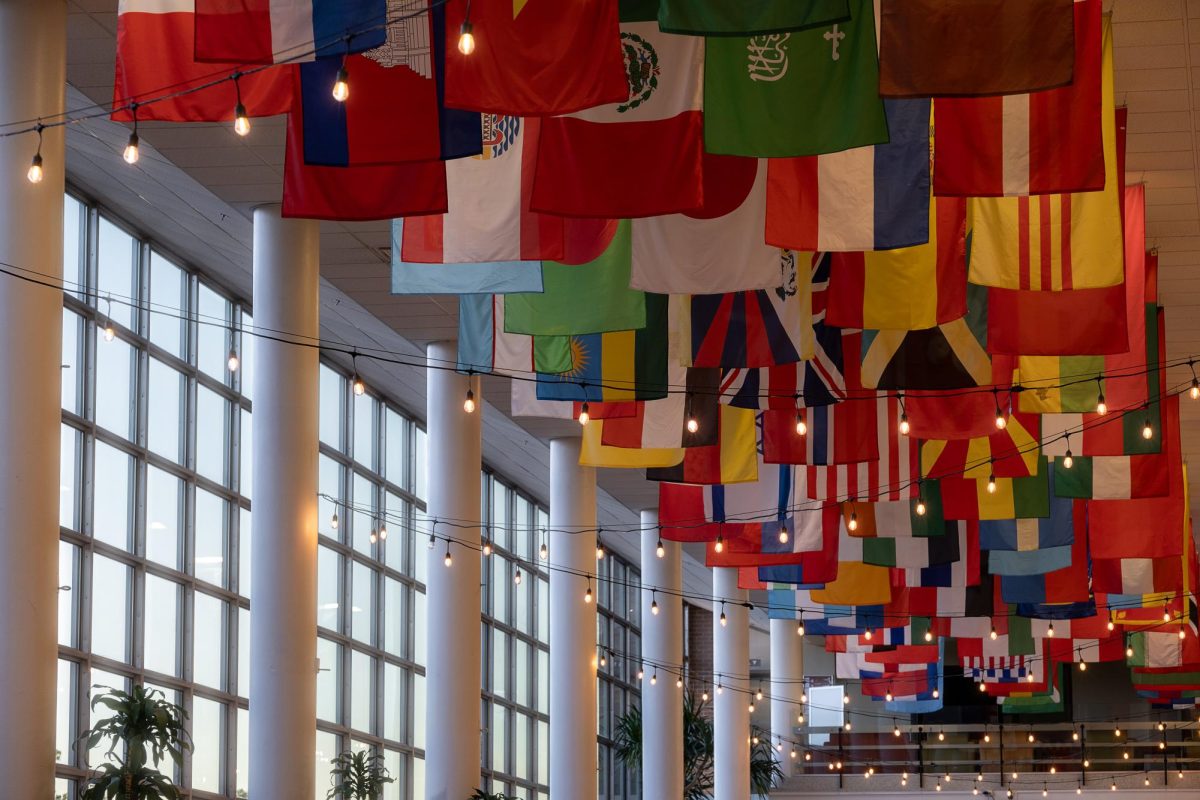Adjusting to American culture can be a battle for international students across the country, and the University of Utah is no exception. Roughly 850 international students from 37 countries enroll at the U yearly, many of whom face homesickness and culture shock.
According to a survey done by University Living, 8 out of 10 international students will experience culture shock.
According to Global U, “one of the most commonly cited challenges for international students” at the U is overcoming language barriers.
Federico Faria Finol, a U graduate from Venezuela, said he learned English through Xbox Live lobbies as a kid.
“Growing up playing video games with American kids made it easier for me to adapt to the language than other international students,” Finol said.
Finol finds that the bigger language barrier for international students is less about the classrooms and more about the lack of mental health resources in students’ first languages.
“Explaining things in English comes very easily to me, but no matter what, if I want to express something with detailed emotion, I will say it in Spanish,” Finol said. “Because I can articulate what I’m trying to say much clearer in Spanish.”
Around the United States, international students are stuck sharing their struggles with someone who speaks English, unless they have options in those students’ first language.
“There are students at the U who can’t find someone who speaks the same language, and when they do, it is often someone who speaks the language from a particular region but is not from the same country as that student,” Finol added.
In the Fall 2022 semester, Finol took a class titled Foundations in Leadership. For his final project, he designed a leadership course to help international students who are struggling with the transition to Utah.
In his course, international students integrated into different community groups, as he explained that they often stick with friends from the same country.
Saurabh Arora, founder and CEO of University Living, said the struggles of culture shock can be overcome with community.
“Culture shock is a phenomenon that most students experience and it’s possible to overcome it fairly quickly with the right support,” Arora said. “For instance, when you’re on campus, you’re often more guarded, but you have a greater chance to mingle with students from backgrounds similar to yours.”
Arora follows a plan to help students get out of the culture shock phase.
“Off-campus, you’re more exposed to the world and have the freedom to mingle with local students and those from other countries, which allows you to learn and understand more about their culture,” Arora said.
Arora encourages students to branch out from the groups they’re currently in to better understand American culture.
Finol found his like-minded community at the U through photography groups.
“We all have our hobbies in different things and I have always loved photography, so I searched for photography groups around campus,” Finol said.
Néné Sow, a Utah women’s basketball player and international student from Belgium, fights feeling homesick daily but has found ways to feel at home in Salt Lake.
“Being surrounded by my teammates helps a lot because they all have at least one similarity to one of my sisters,” Sow said. “So I see a part of them in each of my teammates.”
Sow added downtown Salt Lake reminds her of where she grew up in Belgium.
“I don’t really feel like I’m far away from home,” she said. “I just feel like I’m walking in the neighborhood; the only difference is everyone speaks English.”
Despite this, Sow is still adjusting to the U and encourages students to socialize with other people to avoid homesickness.
“It’s important to have a life outside of basketball,” she said. “I personally neglected life outside of basketball and I think it was the main reason for my homesickness. Making friends and doing activities outside of our comfort zone is important because the people you meet can become our family.”




